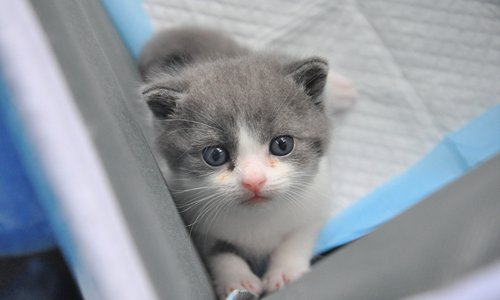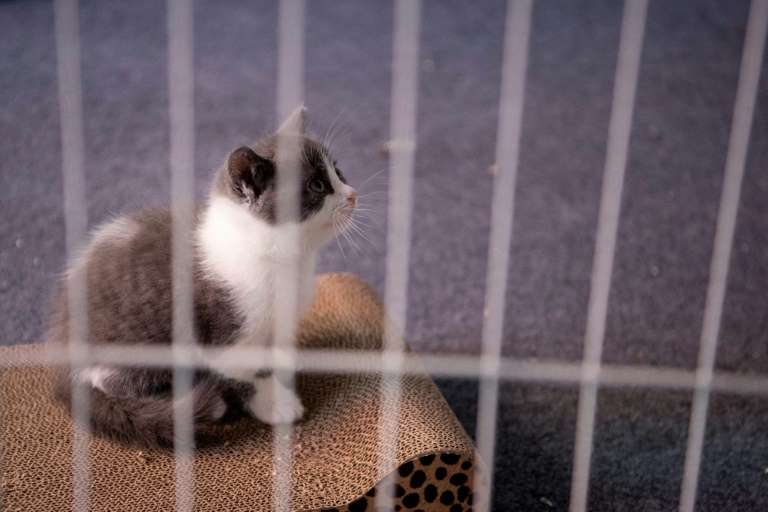Huang Yu, a businessman, has become owner of China’s first ever cloned cat. And it only took him ¥250,000 (around Php1.8 million).
A dedicated pet parent, Huang was devastated when Garlic, his cat, died due to a urinary tract infection. He was broken-hearted enough to dig up Garlic’s body only hours after burying him in consideration of having him cloned. A memory came to him of having read about a company which had successfully cloned pet dogs.
It immediately struck him that cloning was a viable option for his pet.

Image from Global Times
(Study Says People Love Dogs More Than They Do Other Humans)
“In my heart, Garlic is irreplaceable. Garlic didn’t leave anything for future generations, so I could only choose to clone,” Huang shares in an interview with The New York Times.
Huang then contacted biotechnology company Sinogene, who specializes in commercial pet-cloning. Deciding that the hefty fee would be worth being reunited with Garlic, all that was left for Huang was to wait. It took Sinogene 7 months but ultimately, they succeeded in producing what official Chinese media declare the country’s first cloned cat.
The cloned cat, also called Garlic, was produced from skin cells collected from the original British shorthair and eggs harvested from other cats. The cells along with the eggs generated a total of 40 cloned embryos which were then inserted into 4 surrogate cats. While this process resulted in 3 pregnancies, 2 sadly ended in miscarriages.
Garlic the clone may have matching DNA with his predecessor but the two aren’t an identical picture. The Global Times reports that there are differences in both eye and fur color. This Garlic is also missing a black birthmark on her chin.
“If I tell you I wasn’t disappointed, then I would be lying to you,” Huang tells The New York Times. “But I’m also willing to accept that there are certain situations in which there are limitations to the technology.”
Despite the cloning having its limitations, many still consider it a remarkable achievement. Furthermore, it is highly suggestive of where cloning could be headed in a China. Pet cloning is now becoming a more and more viable business in the country, especially since China’s domestic pet market is expected to reach $28.2 billion this year.
The demand for pet dogs and cats is at an all-time high for China and it only seems to be going up. Sinogene has by now cloned a total of 40 dogs at $53,000 (Php2.7 million) each. And it isn’t just the ultra-rich who are opting into it either — most of the customers turn out to be recent graduates or of the younger generation.
This could potentially spell out something dangerous due to the reality of pet cloning being largely unregulated. Fears of animal abuse or cruelty are even stronger in China, where barriers are especially low and laws on animal abuse are virtually non-existent.

Image from AFP
(This Fluffy Doggo Is Set To Make Millions of Pesos a Year)
Moreover, there exists an ethical dilemma wherein pet cloning is questioned as inhumane. It is still unsure whether cloning negatively affects the gene pool or what the full effects are on the cloned animals. It is unclear to critics why the money spent on cloning pets cannot be used to care for and adopt new ones instead.
The question of the surrogate pet mothers weighs especially heavy in the balance. Jessica Pierce, a bioethicist at the University of Colorado Denver, parallels their use as similar to the harm that you would impose on a woman whose only purpose in life is to be a breeding machine for man.”
“The cat has no intrinsic value,” Dr. Pierce said. “It’s used as an object, as a means to somebody’s end.”
In response to these criticisms Wang Chuduan, a professor at China Agricultural University in Beijing, stated: “It satisfies the owner’s spiritual needs and increases happiness. There is a market demand. So what’s the problem?”
Sinogene deputy general manager Zhao Jianping told Global Times that there has already been an inpouring of their cloning services by cat owners.
Would you have your pet cat cloned?




